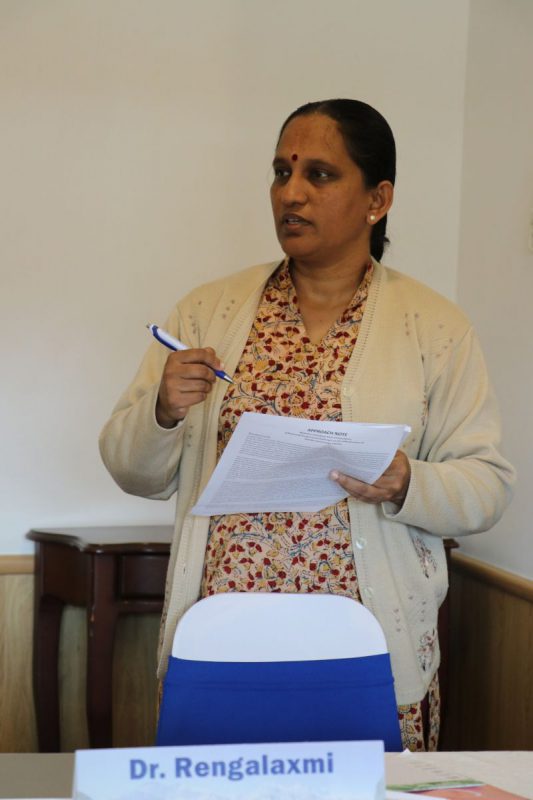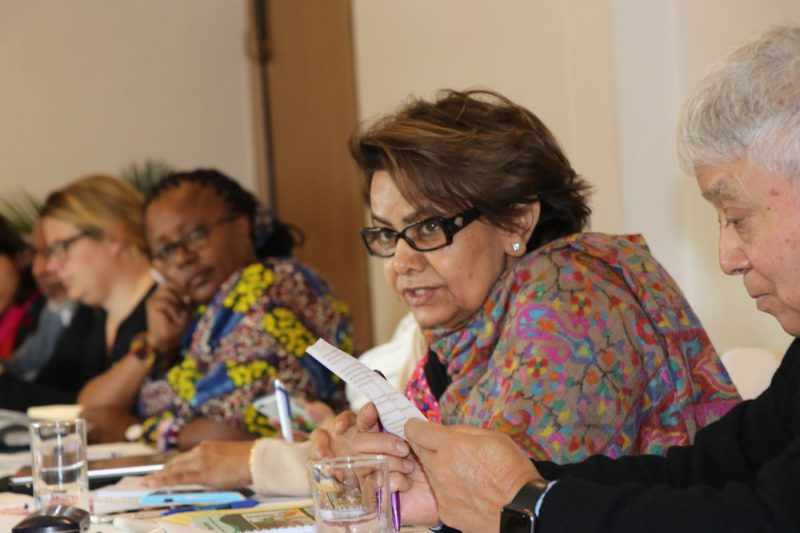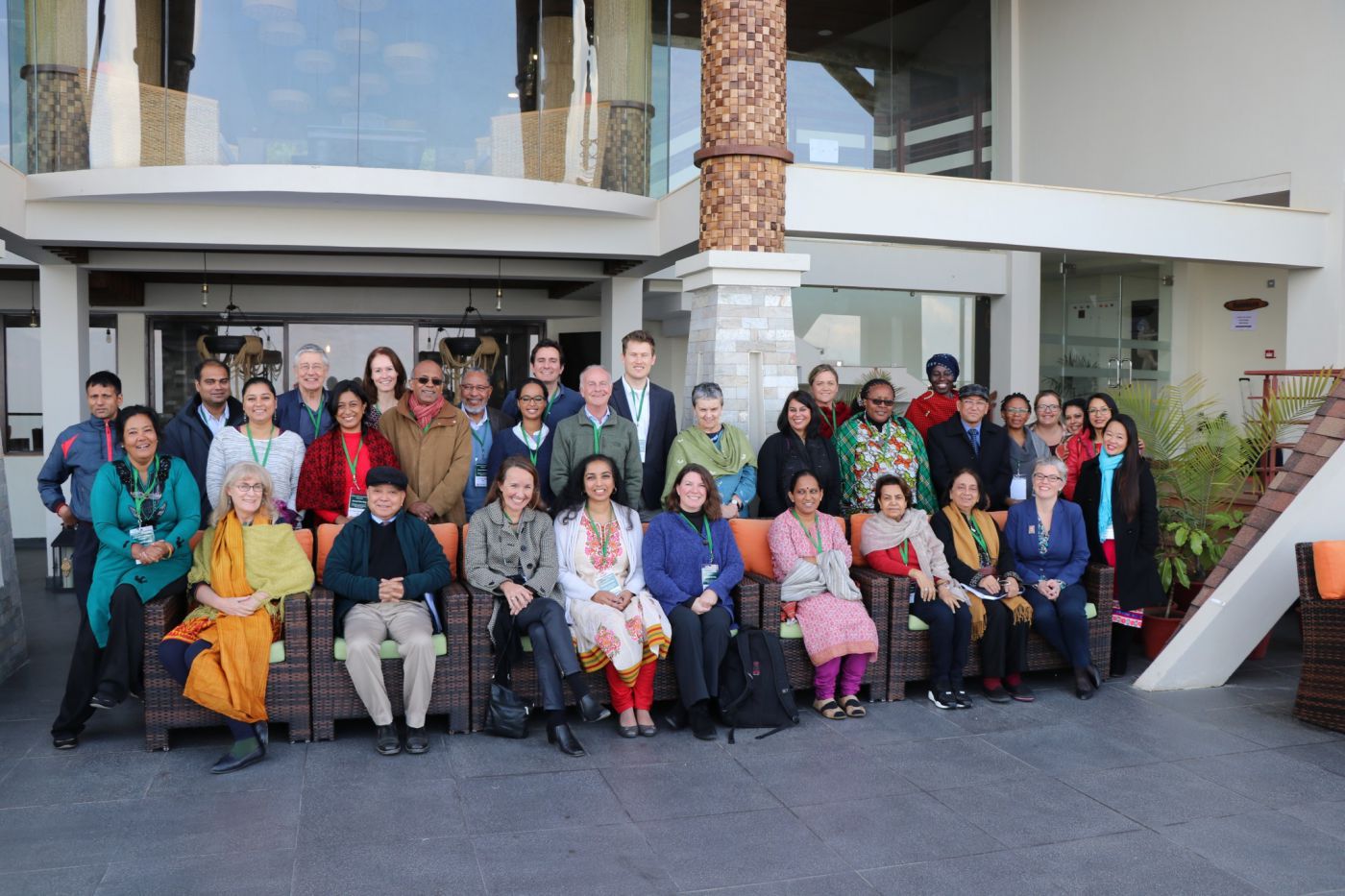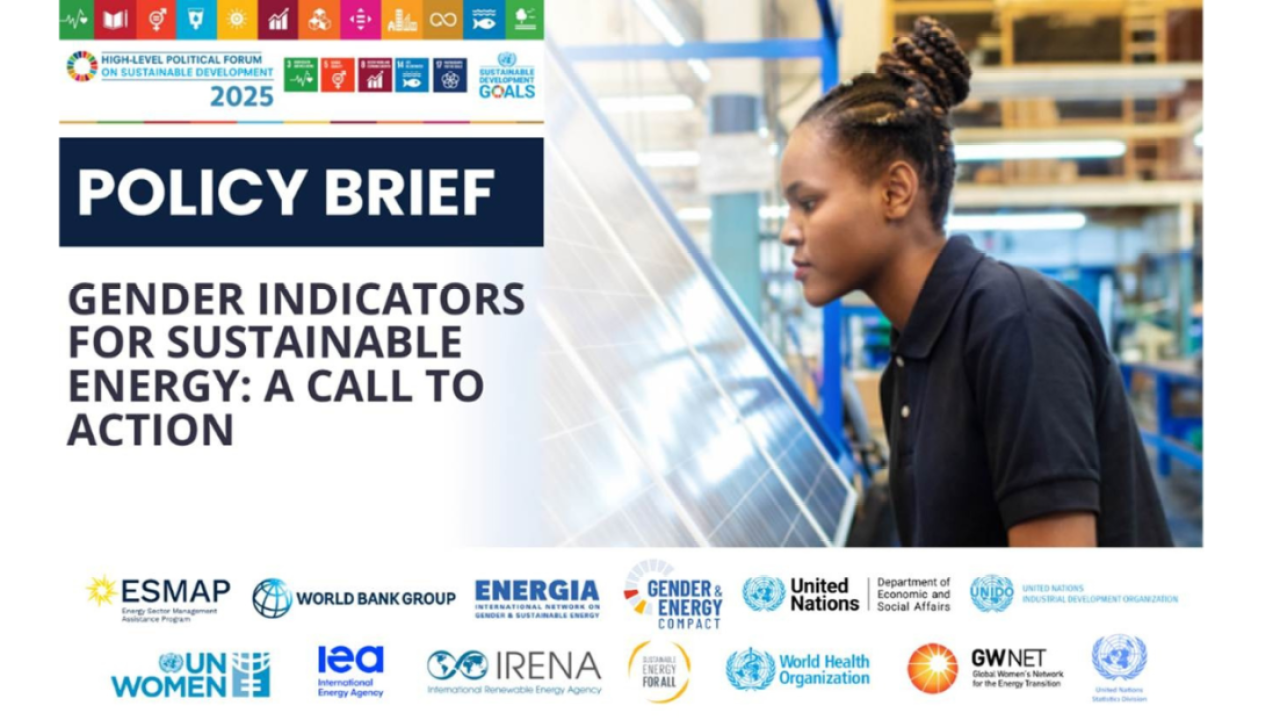By Melissa Ruggles and Shukri Abdulkadir, ENERGIA
At the end of November ENERGIA and its research partners all gathered together thousand metres above sea level in Nepal for a workshop hosted by CRT-Nepal and the M.S. Swaminathan Research Foundation (MSSRF) on Research Area 3 (RA3): The Political Economy of Energy Sector Dynamics on 27 November and the annual meeting of the Gender and Energy Research Programme.
The workshop, Women’s Freedom from Unfreedoms: Influencing Factors and Challenges to the Effectiveness of Gender and Energy Policies, explored the development of policies in India, Nepal and South Africa and their implications on energy access and gender issues. Two high level representatives from the Nepalese energy sector were present, including Dr. Prabhu Budhathoki from the National Planning Commission and Mr. Ram Prasad Dhital, Executive Director of the Alternative Energy Promotion Centre (AEPC). The participants from the energy sector emphasised the relevance of the research being conducted in this programme for (future) policies and invited the members of the research programme to actively engage with policy makers. The decentralisation of government provides both opportunities and threats to the implementation of an energy policy that goes beyond providing supply, but also advances social and/or economic benefits to both men and women.
Attendees at the workshop highlighted the following two key factors as influencing the gender and energy policies:
- The existence of national and local authorities with capacity to translate policy into practice and support in the implementation, advocacy and sensitisation is needed for the target group in order to make them, as well as the policymakers and practitioners, aware of the changes to ensure that they take the target groups’ needs into account.
- A key external element which seems to have a large impact on policy design and implementation in both countries is electoral politics. This seems to play a big role and can shift the focus of policy makers.
After the workshop, ENERGIA and partner organisations’ representatives headed even higher to Nagarkot for the three-day annual meeting of ENERGIA’s Research programme on 28-30 November. The purpose of the annual programme meeting is to reflect on key findings from the research projects and to look ahead. At this year’s meeting, ENERGIA and partners specifically:
- Shared and reflected on the key findings and messages emerging out of the 5 research projects that started in 2015 and the two new projects that started in 2017;
- Shared lessons learned on gender concepts, agreed on priority indicators on gender and energy, and discussed the status of data and metrics on these indicators and interpretation for generalisation;
- Discussed and planned for coordinated policy messages and outputs for an international audience;
- Worked together on strengthening the policy influencing efforts through the development of policy narratives;
- Agreed on key international events for 2018 that provide an opportunity to influence policy and practice and which require joint coordination;
- Agreed on 2018 programme planning;
- And agreed to strengthen each individual project as well as the gender and energy research community.

The discussions on the key findings highlighted some of the key factors hindering poor women from accessing energy, namely high up-front costs and prices per units. Researchers also presented on a number of other factors that can be effective in improving access to energy, such as targeted subsidies for the poor, lowering the threshold for accessing energy by reducing up-front costs, or allowing people to purchase smaller units of energy and/or fuels.
The upcoming year, 2018, heralds the final year for the ENERGIA research programme. As such, all research project partners will focus heavily on ensuring that research findings and recommendations reach key stakeholders in policy and practice. ENERGIA and partners within the research programme will also continue to engage with key stakeholders such as policy makers and practitioners, at global, regional and national levels, but also at the district and/or local levels to drive home those policy recommendations towards equalising energy access.
As Shukri Abdulkadir, Project Officer at ENERGIA, and in attendance at the meetings points out: “Business-as-usual energy policies and interventions are not reaching the most vulnerable and poor and hardest to reach groups. If we are serious about the SDG’s principle of ‘leave no one behind’ we need to step up efforts and focus on ways to reach these last mile and missed groups.”







